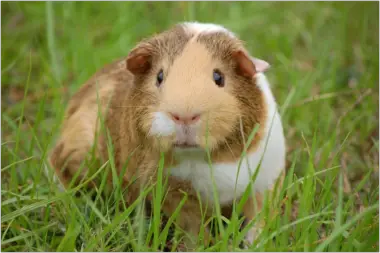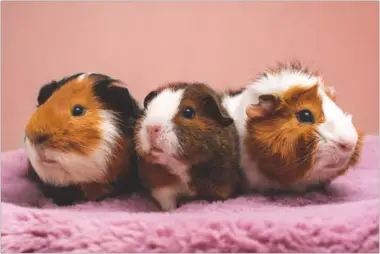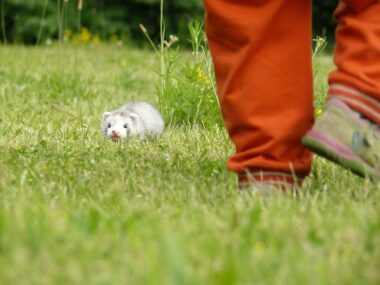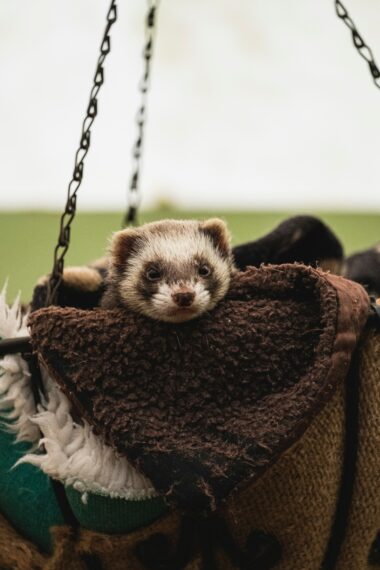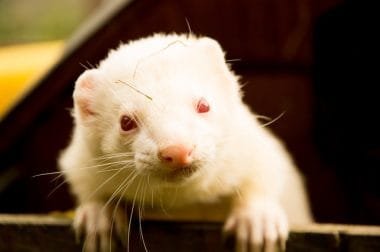Did you have any idea that the proteins and carbohydrates that are found in vegetables and fruits are not the ideal diet for your pet ferret? A large portion of your ferret’s diet should be consisting of meat and more meat! So, you cannot raise a healthy ferret solely on the diet of vegetables and fruits. This article aims to provide you the needed guidelines so that you provide a complete diet to your pet ferret.
What Should be Complete Ferret Food?
Ferrets are carnivores. Thus, a major portion of your ferret’s diet should be consisting of meat. It would be best if they get raw meat. This means, ferret food may consist of whole prey. So, you do not need to process the food. Just buy quality raw meat and feed them as required as per their size and age. Kitten food also comes in the category of ferret food as it has high protein content. Baby food that has high protein content can also be fed to the pet ferret. Dried ferret food containing high amounts of meat protein can also be made a part of regular ferret diet.
You ferret can also be fed on eggs an occasional treat. Ideal proportion of your ferret’s diet is 15-20% fat and 32-38% protein.
Raw Meats that Make Good Ferret Food
- Stripped carcasses and chicken wings
- Game birds
- Turkey necks
- Rabbit
- Lamb
- Pigeons
- Minced beef
- Lamb’s heart
- Offal
- Chicken
- Bones of animals as calcium source and mediums to clean the teeth of the ferret
Whole Prey that Can Make Ferret Food
- Rats
- Mice
- Chicks
Feeding raw meat to your ferret may not seem as a good choice for your ferret at first. But, raw meat replicates the original nutrient needs of the ferret and is quite similar to the natural diet of the ferrets.
Make sure to buy raw meat from reputable and quality retailers. Rodents must also be only bought from retailers who sell quality ferret food. Don’t try to catch any rodent by yourself as the rodents may contain parasites that may harm your ferret.
Double check that your ferret does not hide any food. Raw meat tends to rot at a very fast face and it your ferret feeds on it, then it may cause health problems to your pet. Stale raw meat possesses the dangers of food poisoning for your pet ferret.
Ferret Food Guide
The intestinal track of ferrets is very small and they cannot properly absorb the nutrients. This is the basic reason why ferret food should consist of meat-derived protein and good fats. Ferret body can digest meat protein and fats properly and they get good amount of energy from these nutrient sources.
Fruits and vegetables should be given in a minimal amount to the ferret. Fruits and vegetables are made up of complex carbohydrates and they are also very high in fiber content. Fiber contained in fruits and vegetables is of no use to ferrets because they cannot digest it in the first place.
A high-carbohydrate diet can result in several diseases in your pet ferret. Vegetable protein that is present in fruits and vegetables is also not good for the ferrets. The metabolism of ferrets is very high and they have a short intestinal tract. This means that your ferret must be feed small amount of food at regular intervals.
What Do Wild Ferrets Eat?
In the wild, a ferret can feed on any part of an animal. This may range from bones to flesh. This provides a lot of nutrition to the ferrets and also stimulates and strengthens their jaw. So, you must feed your pet ferret a diet that is rich in meat protein. It is necessary so that it does not develop weakness by being devoid of the required nutrients.
Dried Ferret Food You Can Buy
Dried food can also be given to a pet ferret. You must make sure that the dried food that you are planning to buy contains enough meat protein that is required by the ferret to meet all the diet requirements. You must avoid the foods that are high in carbohydrate and fiber.

Foods that Must Not Be Given to Your Ferret
Fruits or vegetables should not be the main part of the diet of your ferret. Food containing complex carbohydrates should not be fed to the ferret. These kinds of foods contain fibers which are not digestible by the ferrets. Fibers have a low nutritional value for ferrets and thus should not be a part of their diet regime.
Ferrets cannot digest complex carbohydrates because they do not have a part of intestine that most animals have – cecum. Cecum is responsible for producing bacteria which helps the animals to digest carbohydrates. Moreover, a diet rich in carbohydrate can result into the development of excess glucose in the bloodstream of your ferret. This condition can result in insulinoma. It is a kind of cancer that develops in the cells of Pancreas.
Ferrets cannot even digest the protein that is available in fruits and vegetables. They can only digest the protein present in the meat. Eating too much of fruits and vegetables can cause a lot of diseases in ferrets. Diseases include ulcerations of the skin, bladder stones, reduction in reproduction capacity, and poor growth of the kids in future.
The foods listed below are very high in fiber and complex carbohydrates and thus they should be avoided at all costs as your ferret diet:
Vegetables and fruits that one must not feed his/her ferret
- Blackberries
- Lentils
- Apple
- Pears
- Pigeon beans
- Lima beans
- Raspberries
- Pinto beans
- Pink beans
- Small white beans
- Winged beans
- Spinach
- Blueberries
- Banana
- Broccoli
- Dates
- Brussel sprouts
- Figs
- Guavas
- Green beans
- Kiwi fruit
- Oranges
- Onions
- Split peas
- Sweet potato
- Dried plums
- Peanut butter
- Rice
- Raisins
- Chocolate
- Salt
As in the wild, your ferret’s diet should primarily be fat and meat. Only from these foods your ferret will gain energy, and not from carbohydrates and fiber.
Diet for Baby Ferrets
A baby ferret can be fed with a combination of fresh meat, goat’s milk or milk with low lactose content and water. A baby ferret should be fed around four times a day with the following plan:
- Breakfast: Fresh meat chunks and water
- Lunch: meat that is fresh
- Dinner: Fresh meat
- Supper: Meat in combination with bone, along with goat’s milk or low lactose milk
Baby ferrets form a connection with their food in their younger years. So, it is best to develop their eating habits during this period. Once they are old, it is very hard to change the eating habits of your pet ferret. You should encourage your baby ferret to eat different kinds of foods in their younger years so that they do not create any kind of eating habit problems in later years.
Baby ferrets should also be given soft foods on an occasional basis. Baby food should also be high in meat protein content. The dry food should be given only after soaking in water. This will create a habit in the pet ferret to eat soft food when required, such as when being ill.
How Often Should an Adult Ferret be Fed?
The guidelines is not to overfeed. If your pet is overfed, then it may lose appetite and will not be able to eat properly. This will result into making the ferret hoard the food for a later use. The meat products tend to go stale quite quickly. Thus, hoarding meat for a later use will cause bad consequences for the health and the eating habits of your pet ferret.
If you remain out of the house for work or any other chore, then leave some kibble for your pet to eat when it feels hungry. When you are home, you can alternate between fresh meat and ferret kibble. Along with quality food, it is also important that your ferret does enough exercise in order to avoid it from getting fat.
Can Ferrets Have Tap Water?
Yes, ferrets can be given tap water. If your pet ferret turns its nose up, then it may mean that it is smelling chlorine. Then, you must filter the water before giving it to your pet. In order to avoid dehydration, ferrets should be given fresh water daily on a regular basis. When ferrets eat dry food an during summer season, they can go really thirsty. So, water should be a part of the regular diet of your pet ferret.
At the end of the day, ferrets should be given a diet that is rich in protein and fats. They should be hydrated so that they can digest the food easily. Moreover, ferrets cannot break down complex carbohydrates and fibers. Thus, they should not be given fruits and vegetables. Do not overfeed your ferret as it will disrupt its regular eating habits. Also, bones should be fed to ferrets sometimes to maintain the health and strength of their jaws.

